For Novice Writers: The Quick Test For Are You Being Scammed Or Not...
For Novice Writers: the quick test for Are You Being Scammed Or Not...
I read a sad case today of a young writer who had had her story rewritten into illiteracy by a so-called publisher, who then abused her in email when she wrote to complain. She wsn’t getting paid for her story – instead she was actually buying copies of the anthology to show people that she had sold a story. And I thought, it is time to remind the world, and to enlighten young writers, about…
Yog’s Law:
Money flows towards the writer.
That’s all. All writers should remember it. When a commercial publisher contracts a book, it will pay an advance against royalties to the writer. Money flows towards the writer. Literary agents make their living by charging a commission of between 10 and 20% on the sales that they make on behalf of their clients, the writers. When advances and royalties are paid by a publisher the agent’s percentage is filtered off in the direction of the writer’s agent but the bulk of the money still flows towards the writer. If a publisher ever asks for any sort of financial contribution from a writer, they’re trying to divert money away from the writer, in direct contravention of Yog’s Law. If an agent ever asks for up-front fees, regardless of what they call them (reading fees, administration costs, processing fees, or retainers), then they are trying to divert money away from the writer, in direct contravention of Yog’s Law. It’s a brilliantly simple rule. We should thank James D Macdonald for it in the best way there is. Buy his books
Money flows toward the writer.
No, that doesn’t mean that the author should get paper and ink for free, or that he won’t pay for postage. It does mean that when someone comes along and says, “Sure, kid, you can be a Published Author! It’ll only cost you $300!” the writer will know that something’s wrong. A fee is a fee is a fee, whether they call it a reading fee, a marketing fee, a promotion fee, or a cheese-and-crackers fee.
Is this perfect? No. Scammers have come up with some elaborate ways to avoid activating it. But it’s still a good and useful tool, and will save a lot of grief. Any time an agent or publisher asks for money, the answer should be “No!”
More Posts from Alex-seity and Others
Reblog if you have made a friend online that you would love to hang with, but they live far away.
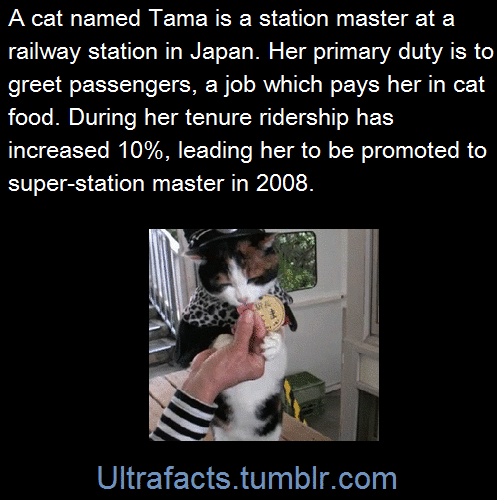

Source
Video of Tama
Follow Ultrafacts for more facts
describing my relationship to someone by introducing them to people as "an old wound"
Hey,
There's a comfy space in my mind, I've made room for you. We can hug and eat cookies or we can just talk about the rain- about this strange weather that covers the moon with a grainy filter. About the pictures you took of me when I wasn’t looking. Hey, Sometimes I feel like I don't know you, and I love that because it means you are you and I am me. Like when you admire someone so much you don't want to be them, you want them to be themselves. Hey, I just want to be with you so I can tell you how I couldn't wrap my head around the fact that I love you so much that I almost forgot.
You know. Some people could really stand to get more comfortable with the idea of “you shouldn’t say that because it’s mean”. Especially with really common body shaming and straight up bullying lines.
“You shouldn’t make ugly bald jokes because what if a transman on T sees it!”
“You shouldn’t make virgin jokes because what if someone who’s asexual sees it!”
How about you just don’t make them because they’re mean. How about people can be balding or a virgin for a number of reasons and also don’t deserve to be routinely made fun of. How about saying that the reason you shouldn’t make x joke because it spares x specific identity’s feelings also let’s them know that you actually have no problem saying or thinking bald people are ugly or virgins are stupid or etc but you’re just not saying it in front of them. How about you understand this kind of body shaming and bullying especially in a very public setting online are always going to have way more unintended damage to people who did nothing wrong than damage to the person you’re upset with.
Sometimes the best reason to not make a bad joke like that is because it’s fucking mean.



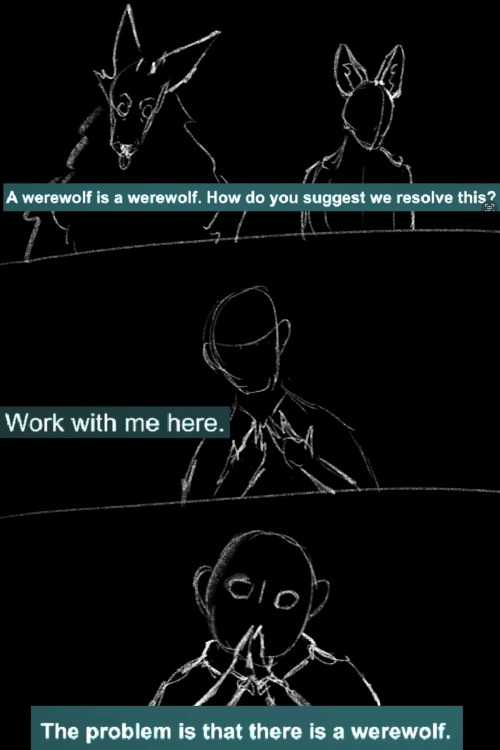




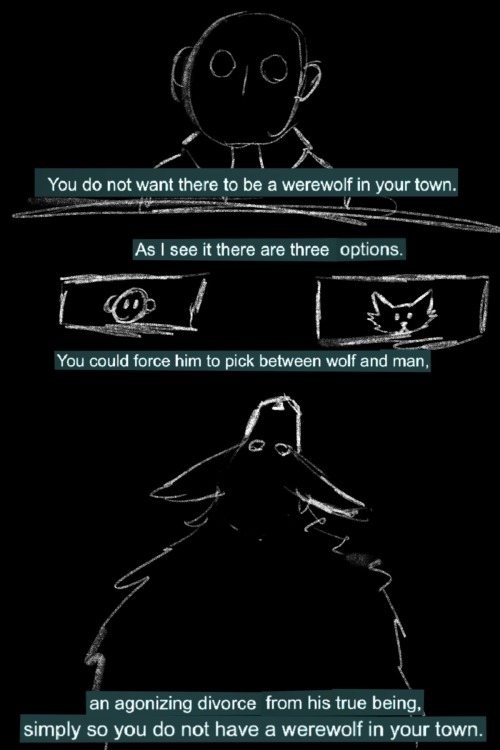
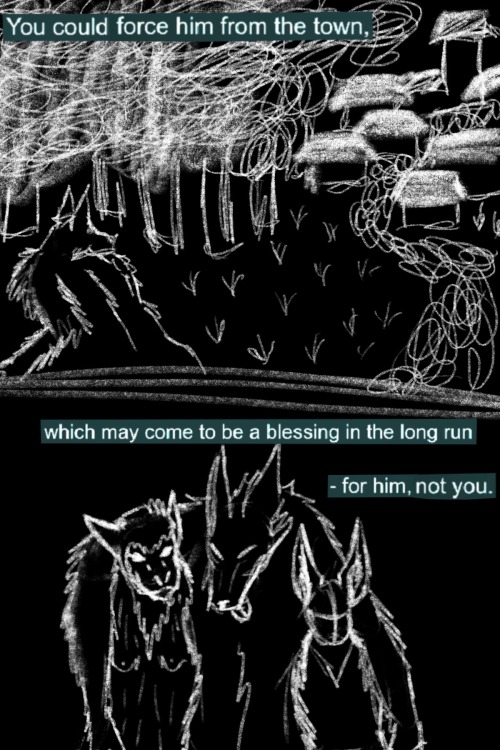


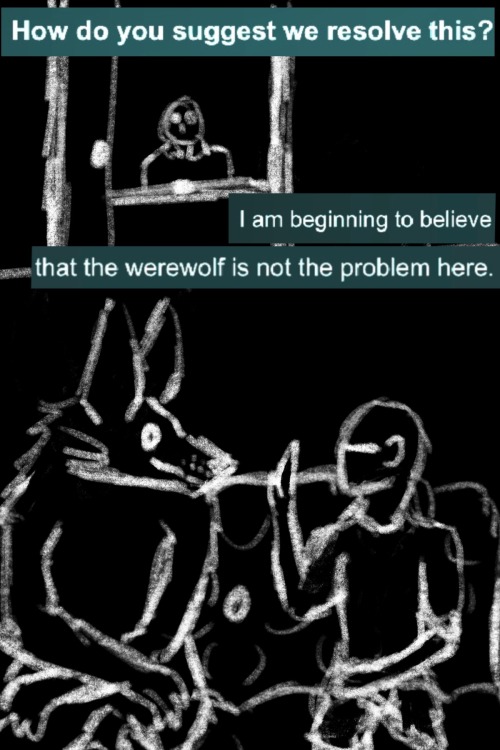
A comic based on this poem

You. Youtuber who makes annoying videos complaining about people "romanticizing" their mental illness. Are you normal about mad people irl
Ironically, I’m still thinking about what you said that day.
For the past year, I’ve been getting myself into knowing people. The internet is full of wonders and there’s a place for everyone, even me, who was never good at this whole socializing… thing. Six years ago, I wouldn’t think I would have more relationships than I could count with my fingers. I didn’t even have a phone, and I was sixteen. But now I worry I’m not going to be able to keep up with my socials. That sounds so stupid, and it is completely beyond my understanding how I came to sound like a popular person… which begs the question: do I have lots of friends or am I just having multiple superficial, short term relationships? Or alternatively: how do time, space, shyness and sincerity work on the internet.
Time works very differently in virtual spaces. You already know the running gag of a meme or a trend dying a week after it becomes viral, but I’m not writing about that. I’m writing about the vertiginous speed at which you might be forgotten; not as a trend or as an influencer, but as a person. As a face. The weather changes quite fast in online chats, and people come and go as they please. And on that note, having a deep conversation with an anonymous account in a public forum is a strange experience, you feel both naked and accepted, both vulnerable and understood. That’s a friend you make and miss at the blink of an eye. Once, a person on those forums told me the most comforting words I needed to hear at that time: write who you are. Doing that made me able to self-reflect and find myself when I was deeply lost. I could never thank them, because, as I said, the rain is heavy and the sound is muffled. You never know when the other has left, or if they ever heard you in the first place.
It can also pull the strings of space, both closer and further away. I remember the spring of 2018. I went to Sweden and made three friends who all liked Homestuck; now, for the past years, I’ve managed to still talk to them through my phone. Isn’t that awesome.
And cliché.
So far yet so close, so close yet so far. And even then, there’s an impossible distance that eludes every metric. I’m talking about coldness. You see, even if we have everyone at the palm of our hand, we might not be able to talk to them sometimes. We have places to be and other people to meet, not to mention activities we like to do alone. Meanwhile, an ice wall seems to be rising between you and the other. Relationships get cold quickly. Or maybe that’s just me. “It would be too weird to call them now” “Does he even remember me?” “What do I talk about?” I have these questions because I worry I’ll be rejected. Fear of rejection: one of the most present on the internet, because fictional space means distance is made up too, which is a good thing since you can block anyone that hurts you, but a bad thing since anyone can marginalize you as well. Conclusively, we have full agency in what near and far mean; that’s both empowering and frightening.
Following the last train of thought, I see anonymity as a boundary in public space very few communication media have. Anonymity; this monster that seems to have shadowed all internet discussion. Let’s get this out of the way first, anonymity only exists as a concept. Even if you can fake an identity, there are parts of your true self that are impossible to hide. If you choose not to show your face, your voice still expresses who you are. If you express yourself only by text, your writing style informs of a surprising number of distinguishable features that make you up. Secondly, I’ve learned that being anonymous isn’t necessarily harmful. By one side, there’s those who use it to shield themselves for real-life consequences of spreading hate. By the other, however, and since you choose what is known of you, there’s the more general population that use it to be themselves while also being safe—they can be hurt psychologically, but never physically.
As expected of a place where people have control over the boundaries between the private and the public, people here show more honesty than elsewhere. No one can judge your body, your voice, or even your nationality if you don’t let them. Your personality alone may speak without fear.
Even then, coldness is still unavoidable.
Aristotle—sorry to pull this guy out of his grave, I’m a philosophy student and can’t help to do constant parallels—Aristotle wrote about friendship in terms of a space that surpasses another. That means you and I are not friends because we go to the same school, but because we want to meet later at the park. This, in online relationships, translates to “we are not friends because we play the same game or talk in the same forum, but because we call each other in Discord later”. Although there’s a joy in playing games with certain people, they aren’t always our authentic friends; the ground between gaming-buddies and friends is misty. This is why I met so many people, but not as many friends along the way. Most people I discussed this with had the same experience of finding interesting folk while playing a game, growing emotional investment toward them, and abruptly seeing them disappear like they never existed. So coldness is unavoidable, because when you face the uncertainty of the future, when fear of loss crawls by your back, it’s really hard not to build a shelter made of the thickest ice around your heart; not to escape having hopes, so you can’t have them crushed either.
I got myself into knowing people on the internet thinking it would be easier, but ultimately friendship is the same wherever you find it. Time seems to fly faster, but people come and go, so have fun while you can and cry when it’s over. Distance is fictional, but you don’t need to stay anywhere, be it here or in real life, if it makes you feel uncomfortable. And sure, this conception of virtuality comes in part from exploring it, and in part out of my own biases. There are things you might relate to that are ultimately subjective: this place is immense, its people, diverse... its "weather", strange. Everyone follows a different path. And ironically, I’m still thinking about what you, apparently a stranger, said that day.
You told me about the snow in Finland and the solitude of snowflakes, about friends long-lost and the impossibility of time. About cookies, both in a browser and in the oven; about humans, both stupid and wishful. Morning routines, favorite candy, nail ideas, the sun in Australia, the cliffs of Norway. We shared poems and songs, and I listened to your troubles and you listened to mine. All of these voices I’ll remember and consider my friends. Even if I lose them in the digital space, my arms will always be open to them, and to any kind stranger.
-
 heckcareoxytwit liked this · 3 weeks ago
heckcareoxytwit liked this · 3 weeks ago -
 eccentricrage reblogged this · 3 weeks ago
eccentricrage reblogged this · 3 weeks ago -
 neocelticavalon liked this · 1 month ago
neocelticavalon liked this · 1 month ago -
 thedlwriter1992 reblogged this · 1 month ago
thedlwriter1992 reblogged this · 1 month ago -
 thedlwriter1992 liked this · 1 month ago
thedlwriter1992 liked this · 1 month ago -
 jenuinelycurious liked this · 1 month ago
jenuinelycurious liked this · 1 month ago -
 jenuinelycurious reblogged this · 1 month ago
jenuinelycurious reblogged this · 1 month ago -
 thelaundrybitch reblogged this · 1 month ago
thelaundrybitch reblogged this · 1 month ago -
 jesterpanic reblogged this · 1 month ago
jesterpanic reblogged this · 1 month ago -
 newdawnhorizon reblogged this · 2 months ago
newdawnhorizon reblogged this · 2 months ago -
 ficionalmanenthusiast reblogged this · 4 months ago
ficionalmanenthusiast reblogged this · 4 months ago -
 ficionalmanenthusiast liked this · 4 months ago
ficionalmanenthusiast liked this · 4 months ago -
 everlovingdeer reblogged this · 4 months ago
everlovingdeer reblogged this · 4 months ago -
 arrowrites reblogged this · 4 months ago
arrowrites reblogged this · 4 months ago -
 universeinherafro liked this · 5 months ago
universeinherafro liked this · 5 months ago -
 keebiekneebiez reblogged this · 5 months ago
keebiekneebiez reblogged this · 5 months ago -
 superheroauthor reblogged this · 5 months ago
superheroauthor reblogged this · 5 months ago -
 peaceloveandafropuffs reblogged this · 5 months ago
peaceloveandafropuffs reblogged this · 5 months ago -
 superheroauthor reblogged this · 6 months ago
superheroauthor reblogged this · 6 months ago -
 newdawnhorizon reblogged this · 6 months ago
newdawnhorizon reblogged this · 6 months ago -
 thevelvtrope liked this · 6 months ago
thevelvtrope liked this · 6 months ago -
 iforgothepasswordtomyoldaccount liked this · 6 months ago
iforgothepasswordtomyoldaccount liked this · 6 months ago -
 sleepysongbirdsings liked this · 6 months ago
sleepysongbirdsings liked this · 6 months ago -
 anumberofhobbies liked this · 6 months ago
anumberofhobbies liked this · 6 months ago -
 thewritinggrindstone reblogged this · 6 months ago
thewritinggrindstone reblogged this · 6 months ago -
 theda-rison liked this · 6 months ago
theda-rison liked this · 6 months ago -
 superheroauthor reblogged this · 7 months ago
superheroauthor reblogged this · 7 months ago -
 haloblitz liked this · 8 months ago
haloblitz liked this · 8 months ago -
 emptytimestwenty reblogged this · 8 months ago
emptytimestwenty reblogged this · 8 months ago -
 eshidu liked this · 8 months ago
eshidu liked this · 8 months ago -
 clairegatsby reblogged this · 8 months ago
clairegatsby reblogged this · 8 months ago -
 newdawnhorizon reblogged this · 9 months ago
newdawnhorizon reblogged this · 9 months ago -
 idoadoreyou liked this · 9 months ago
idoadoreyou liked this · 9 months ago -
 yolky206 reblogged this · 9 months ago
yolky206 reblogged this · 9 months ago -
 theparanoidbunny reblogged this · 9 months ago
theparanoidbunny reblogged this · 9 months ago -
 bellablue42 reblogged this · 10 months ago
bellablue42 reblogged this · 10 months ago -
 bellablue42 liked this · 10 months ago
bellablue42 liked this · 10 months ago -
 calluou liked this · 10 months ago
calluou liked this · 10 months ago -
 antiquem0use liked this · 10 months ago
antiquem0use liked this · 10 months ago -
 bloop-posts reblogged this · 10 months ago
bloop-posts reblogged this · 10 months ago -
 bloop-posts liked this · 10 months ago
bloop-posts liked this · 10 months ago -
 madelinesnarutoblog liked this · 10 months ago
madelinesnarutoblog liked this · 10 months ago -
 infinightlythings-blog reblogged this · 10 months ago
infinightlythings-blog reblogged this · 10 months ago -
 moth-envy liked this · 10 months ago
moth-envy liked this · 10 months ago -
 leonanette liked this · 10 months ago
leonanette liked this · 10 months ago -
 persnickett reblogged this · 10 months ago
persnickett reblogged this · 10 months ago -
 oneofnaturespedestrians reblogged this · 10 months ago
oneofnaturespedestrians reblogged this · 10 months ago -
 loganelfreeces reblogged this · 10 months ago
loganelfreeces reblogged this · 10 months ago

